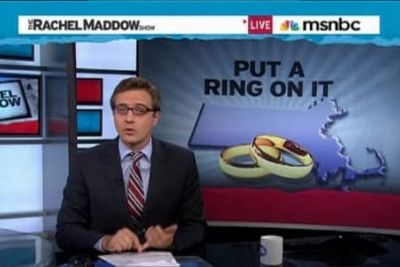Local gay-marriage advocates are heartened by yesterday’s federal-court decision in two separate cases declaring parts of the 1995 Defense of Marriage Act
“We’re cautiously optimistic,” says Chris Sanders, chair of the Tennessee Equality Project’s Nashville committee. “The idea that DOMA violates the equal-protection clause of the constitution is something that marriage advocates have been saying for a long time, and it’s nice to hear a court say it as well. But the 10th Amendment part of the ruling that says states are sovereign over issues means that this will continue to play out.”
The court held that the portion of the statute barring federal legal protections to legally married same-sex couples violates states’ rights to define marriage, and also violates the equal-protection clause by treating married same-sex couples differently than their heterosexual counterparts. Prior to DOMA’s passage, the federal government always recognized the states’ right to define marriage.
The cases were brought by the Massachusetts attorney general and Gay & Lesbian Advocates & Defenders.
In related news, the Respect for Marriage Act is currently pending in the U.S. House of Representatives. It would repeal DOMA and respect state marriages by providing federal protections for married same-sex couples. Specifically, once the federal government recognizes the marriage of a same-sex couple, it would continue to recognize that marriage even if the couple moved to another state that would not have allowed the couple to marry in the first place.
“[The] decision is an important step forward for marriage for same-sex couples,” said James Esseks, Director of the ACLU Lesbian, Gay, Bisexual and Transgender Project. “There are thousands of same-sex couples lawfully married in the five states and Washington, DC, that currently allow them the freedom to marry. Today’s ruling recognizes that the federal government has literally no justification for refusing to respect those marriages.”
For his part, Sanders added that the best-case scenario locally would be for this issue to continue on to the U.S. Supreme Court, which has at least one other major case headed its way with the discrimination challenge to California’s Proposition 8.
“If the statute is finally struck down, then we’d have a situation in Tennessee where we would have to look at whether or not marriages performed out of state are going to be legal here,” Sanders said. “It looks like DOMA is finally getting the type of challenges that are going to bring it down.”
